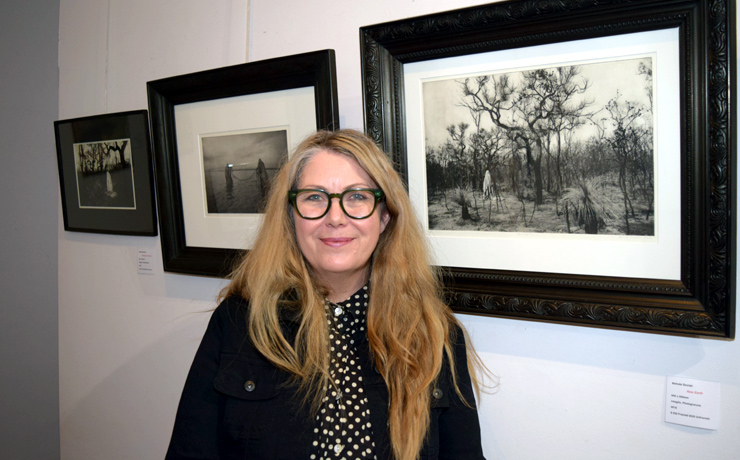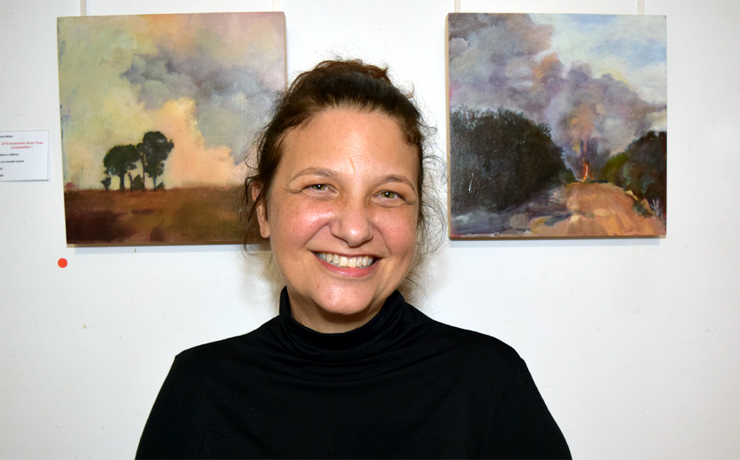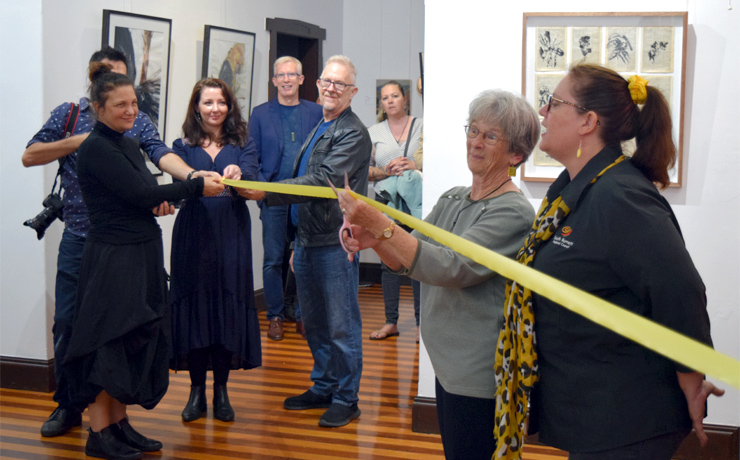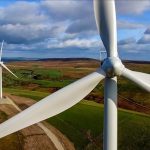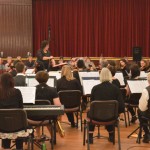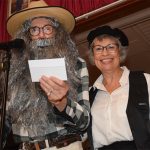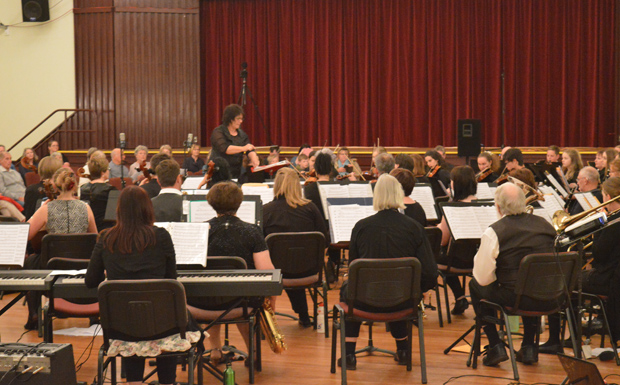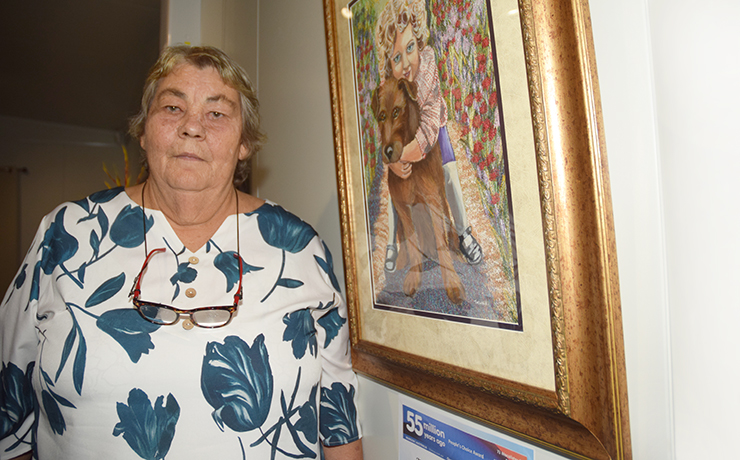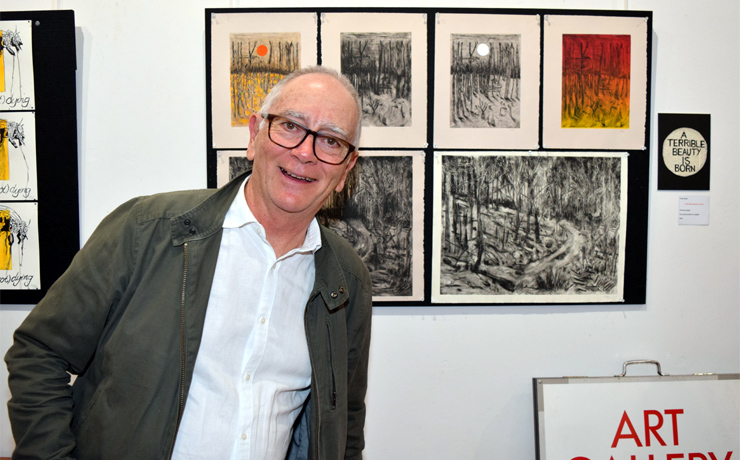
May 20, 2021
People who’d like to see different views on the effects of climate change have just one week to catch “All The Bees Are [Not] Dying” at the Kingaroy Regional Art Gallery.
The exhibition – put together by seven Brisbane artists – captures their reactions to climate change in drawings, prints, photos, paintings and videos.
The exhibition was organised by Peter Breen, the co-founder and director of the Jugglers Art Space in Brisbane and a long-time collaborator with the gallery.
At the exhibition’s opening night, Peter spoke about what the show was trying to achieve.
“In these drawings, prints, photos, paintings and videos, we are pursuing a deeper understanding of the environment, its life cycles, its layers of interdependence and the effect of climate change on these cycles,” he said.
“We hold firmly to the idea that beauty in the landscape is deeply spiritual and life giving, and that even as the landscape is destroyed and rebirthed that beauty is present.
“This does not justify poor climate change policy – which we are strongly opposed to – but it enables us to find a struggling hope in even the most devastating effects of global warming on the flora and fauna of this beautiful land.”
Peter also paid tribute to former Kingaroy artist and environmentalist David Bryce.
“Outside this gallery there is a large rock that holds a dedication plaque to David,” he said.
“This exhibition is in memory of David and holds his spirit.”
Peter said he hoped the exhibition would also have a local resonance.
“Climate change and global warming has been affecting farming communities, soil health, economic prosperity, community viability and species survival over the past few hundred years since the industrial revolution. And now it is very serious.
“For you here, according to a recent ABC article on peanut growing in Kingaroy, the weather in this region is now not as peanut growing friendly as it was.”
- All The Bees Are [Not] Dying will remain on display at the Kingaroy Regional Art Gallery at 126 Haly Street, Kingaroy from 10:00am to 4:00pm Mondays to Fridays and 9:00am to noon on Saturdays until May 28. Admission to view it is free.
